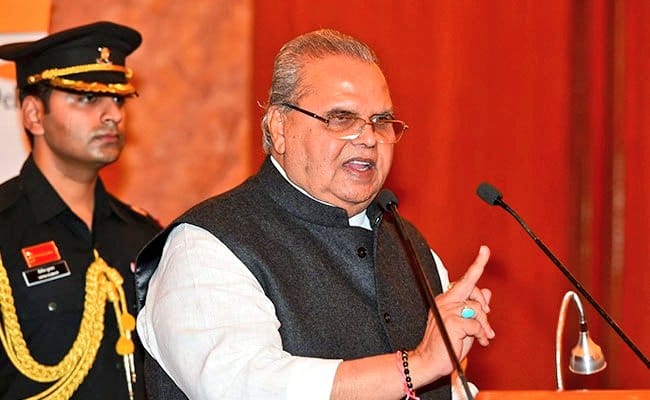Date: [5 August 2025]
Satyapal Malik, a name synonymous with forthright politics and bold governance, holds a unique place in Indian political history. From a humble beginning in a farming family in Baghpat, Uttar Pradesh, to serving as Governor of several key Indian states, his life and legacy are an inspiring tale of conviction, controversy, and public impact.

Early Life and Education
Satyapal Malik was born on July 24, 1946, in Hisawada village, Baghpat (U.P.), into a simple farmer’s family. His father, Devi Singh, and mother, Ajmeri Devi, embedded in him values of hard work and honesty from a young age. After completing his school education, Malik pursued higher studies at Chaudhary Charan Singh University (Meerut), where he earned a B.Sc and LL.B. degree—setting the foundation for his future political and legal insights.
He married on December 14, 1970, to Iqbal Malik, and the couple has a daughter, Seema Malik.
Political Career Milestones
Satyapal Malik’s career is filled with notable milestones and pivotal moments:
- 1974: Entered politics by winning the legislative assembly seat from UP’s Baghpat.
- 1980-1989: Served as a member of the Rajya Sabha, where his talent for debate and deep understanding of agrarian issues shone.
- 1984: Fought in Baghpat on an opposition ticket against the late Chaudhary Charan Singh, remaining undeterred by defeat.
- 1989-1991: Became Member of Lok Sabha (Aligarh), representing people at the national stage.
- 2004: Appointed as the National Vice President of the BJP, reflecting his growing influence across party lines.
- 2014: Contested in the Lok Sabha elections from Baghpat as a BJP candidate.
Tenure as Governor
Malik’s reputation for strong governance and fair decision-making led to his appointment as Governor of several prominent states:
| State | Tenure |
|---|---|
| Bihar | September 2017 – August 2018 |
| Odisha | May 2018 (additionally for brief time) |
| Jammu & Kashmir | August 2018 – October 2019 |
| Goa | October 2019 – August 2020 |
| Meghalaya | August 2020 – October 2022 |
During his tenure in Jammu & Kashmir, he witnessed and oversaw pivotal events, including the abrogation of Article 370 and the reorganization of the state—a period regarded as a turning point in Indian constitutional history.
Net Worth and Personal Life
Public interest in Satyapal Malik’s net worth peaked during and after his time in public office. As per last filed election affidavits and public disclosures, his net worth was estimated around ₹5–7 crore. This included agricultural land, a family home, and various investments. Known for his modest lifestyle, Malik maintained a reputation for integrity and transparency, both in public and private life.
His family is not deeply involved in politics, with his only daughter, Seema Malik, focusing on social work.
Frequently Searched Questions About Satyapal Malik
- Age at death: 77 years (Born July 24, 1946)
- Educational qualifications: B.Sc, LL.B from Meerut University
- Marital status: Married, wife Iqbal Malik
- Children: One daughter (Seema Malik)
- Political parties associated with: Bharatiya Kranti Dal, Congress, Janata Dal, BJP
- Famous for: Fearless statements, pro-farmer stance, straightforward governance, controversy during J&K governorship
- Notable controversies: His outspoken criticisms on central government policies, especially regarding farmers’ rights and Jammu & Kashmir governance decisions
An Enduring Legacy
Satyapal Malik’s legacy is one of grit, reform, and fearlessness. In a political culture often dominated by diplomacy and tactical silence, Malik’s open criticism—especially during the farmers’ movement and his candid reflections on national security—set him apart as a principled outlier. His governance was marked by calls for transparency and social justice.
People who knew Malik recall his accessibility, modesty, and the ability to connect with the masses, especially farmers and marginalized groups. Even after leaving office, he remained vocal on public issues and continued to question the status quo.
As India remembers Satyapal Malik, his life serves as a reminder—for politicians and citizens alike—that politics, at its best, can serve people, stand by principles, and inspire future generations to speak truth to power.



